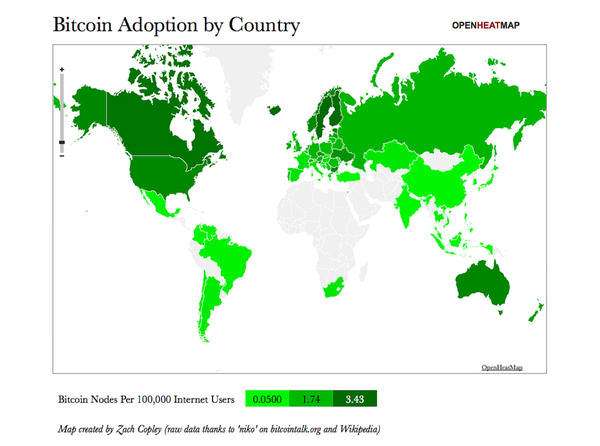Bloomberg Pundits Blabber Nonsense About Bitcoin


On Thursday Bloomberg's Paul Sweeney and The Atlantic Senior Editor Clive Crook offered some thoughts on bitcoin, the world's first decentralized and virtual currency. While it's nice to see bitcoin getting more attention, Crook and Sweeney rattled off some depressingly inaccurate claims.
"It's still, I think, barely money in the sense that it's not widely accepted as a means of payment and that's part of the definition of money," Crook said. Really, though? According to Gregory Mankiw's Principles of Economics, money is "the set of assets in an economy that people regularly use to buy goods and services from other people" which function as a "medium of exchange, a unit of account and a store of value." Nowhere in the basic definition of money or its uses does it say anything about the need for it to be "widely used."
Asked about the issuance of bitcoin, Sweeney said, "It's just kind of out there in the e-commerce eco-system."
Out there? No. Bitcoin has a protocol that releases the cryptocurrency into circulation each time a transaction is verified (according to a release rate determined by the protocol). Each transaction involving bitcoin must be verified and the individual who verifies the transaction is awarded a set number of bitcoins (current number is 25). The Bitcoin protocol also uses a scheduled release rate ending in the year 2140. The overall limit is 21 Million BTC. In other words, it's not "just kind of out there."
The problems don't end there.
In a discussion of the way transactions are verified, Sweeney referred to the people involved in those operations as hackers. "It's been created by—we don't even know who created it—it's been by a number of, one or more hackers that no one even knows the identity of."
Here's a clearer answer for Sweeney: To obtain bitcoin one must use a "Wallet" which will generate a Bitcoin address, similar to your standard bank account (and routing) number. To actually obtain Bitcoin in your wallet, there are a variety of currency exchanges to choose from. It all depends on what currency is being converted.
No part of that process involves hacking (though lots and lots of developing, to be sure). Are some of the people who use bitcoin hackers? Possibly. Does on have to be a hacker to use bitcoin? No.


Hide Comments (0)
Editor's Note: As of February 29, 2024, commenting privileges on reason.com posts are limited to Reason Plus subscribers. Past commenters are grandfathered in for a temporary period. Subscribe here to preserve your ability to comment. Your Reason Plus subscription also gives you an ad-free version of reason.com, along with full access to the digital edition and archives of Reason magazine. We request that comments be civil and on-topic. We do not moderate or assume any responsibility for comments, which are owned by the readers who post them. Comments do not represent the views of reason.com or Reason Foundation. We reserve the right to delete any comment and ban commenters for any reason at any time. Comments may only be edited within 5 minutes of posting. Report abuses.
Please to post comments
Mute this user?
Ban this user?
Un-ban this user?
Nuke this user?
Un-nuke this user?
Flag this comment?
Un-flag this comment?